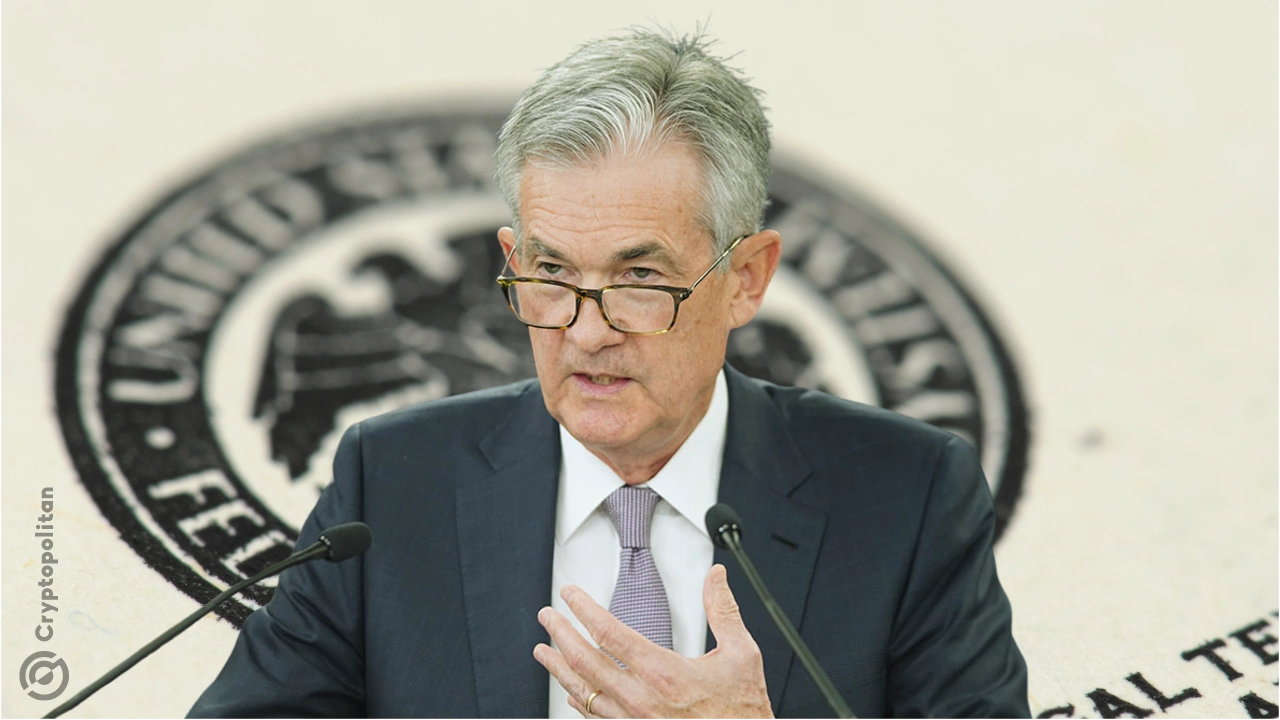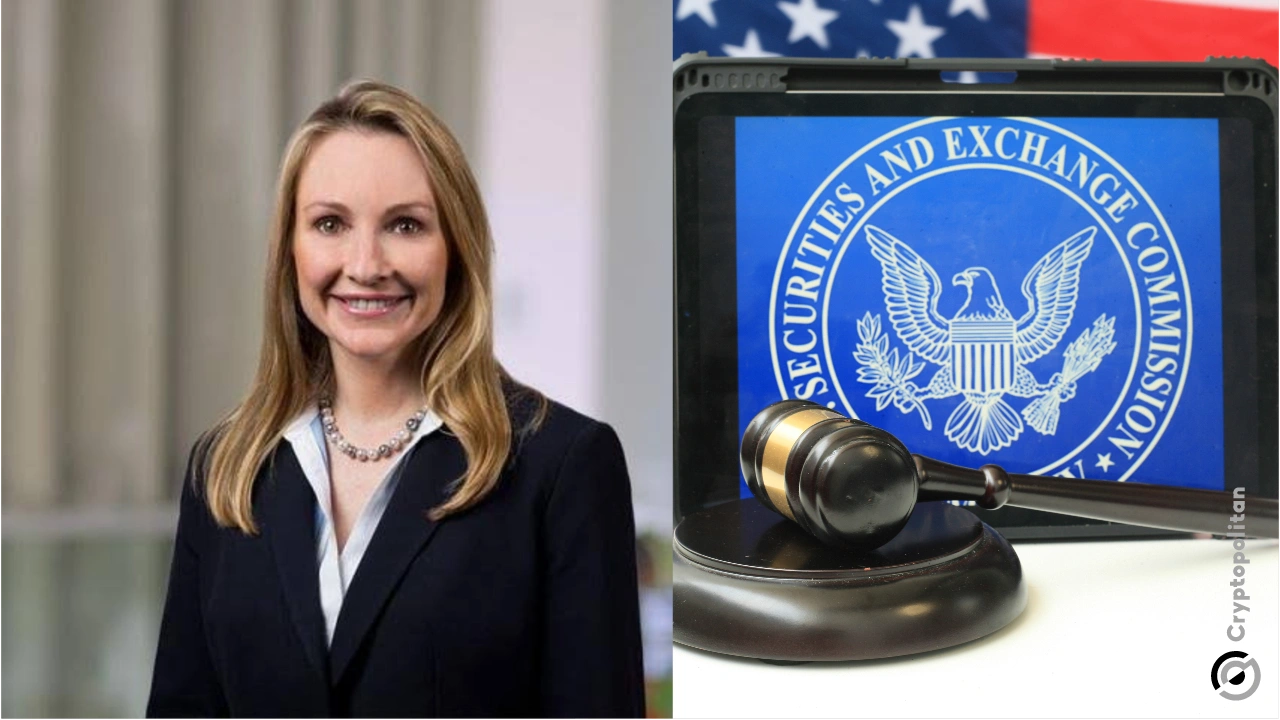
Jerome Powell is digging in his heels, and he’s not about to let anyone, not even Donald Trump, tell him how to run the Federal Reserve.
When asked if he’d step down if the President-Elect told him to, Powell shot back with a simple, “No.” Trump, who’s already had a go at trying to get rid of Powell during his first term, has said that he wants to give it another go in his second one.
Trump genuinely believes he should have a say on interest rates, especially if they don’t align with his plans to juice up the economy. And Powell? He’s not having it. Even though the president gave him the top job back in 2018, things turned sour fast when Powell started raising rates.
Trump’s dream of an economy in perpetual growth mode clashed with Powell’s commitment to keeping the Fed’s policies grounded in data.
Trump vs. Powell: A clash for control
Lower rates mean cheaper loans, more business expansion, and a stock market that keeps climbing. And for Trump, a roaring economy has always been a big part of his agenda. But Powell, known for his strong principles, has been pushing back against the idea of letting the Fed become a puppet for the White House. He’s here to do what he thinks is right, even if that means going head-to-head with Trump.
It’s a battle that’s likely to get even messier. Trump’s hinted that he’ll let Powell finish his term, which ends in 2026, but that’s as close to a truce as it gets. Trump’s friends on Capitol Hill are already circling. Republican Senator Bill Hagerty, a top pick for Trump’s new cabinet, threw in his support for reshaping the Fed.
“Everything should be on the table,” Hagerty said, hinting that the administration is looking at ways to shake things up. Hagerty even mentioned exploring legal options to bring down Michael Barr, the Fed’s Vice Chair for Supervision and a figure that Republicans have been railing against.
A Fed historian at the Wharton School, Peter Conti-Brown, sees this as Powell drawing a line in the sand. “This is Powell’s declaration that the president-elect can have his say on the Fed, but not until there are vacancies to fill,” Conti-Brown said.
And Powell has allies too. Ian Katz, managing director at Capital Alpha Partners, pointed out in a client note that Powell is “a firm believer in the importance of Fed independence.” If Powell walked away now, it would be like saying the Fed isn’t independent, and he’s not going to give Trump that satisfaction.
Interest rates in the crossfire
The Fed just delivered a quarter-point interest-rate cut, the second one in a row. Investors and analysts are now wondering if the Fed will go even lower, especially with Trump’s economic plans on the horizon.
The policies are all about high-speed growth—think aggressive tariffs, immigration crackdowns, and extended tax cuts. All these could spark inflation and push long-term rates higher, and Trump knows it.
But Powell’s not rushing to make any promises. He’s still adamant that rate cuts will only happen if the economic data supports them, not because Trump wants to put his foot on the gas. “We don’t know what the timing and substance of any policy changes will be,” Powell said. He’s keeping his focus on the Fed’s main goals: full employment and stable prices.
Not everyone’s convinced Powell will keep cutting rates, though. Lindsey Piegza, chief economist for Stifel Financial, pointed out that Powell “left the door open for a potential policy pause at that December meeting,” but only if the numbers stay strong and inflation remains stubborn.
Powell, true to his cautious style, said that “all options remain on the table,” leaving everyone guessing until the Fed’s final meeting of the year.
Changes in the Fed’s language and market reactions
The Fed’s recent meeting also came with some subtle, but telling changes in its language. The Federal Open Market Committee (FOMC) agreed unanimously to lower the benchmark rate by 25 basis points, pushing it to a range of 4.5%-4.75%.
Gone from the Fed’s statement was any mention of “further” inflation progress. Instead, they acknowledged that inflation, while improving, is still “somewhat elevated.” The FOMC’s job isn’t getting any easier, with Powell and his team seeing “roughly balanced” risks to their employment and inflation goals.
The Fed’s statement also said that “labor market conditions have generally eased,” and while the unemployment rate ticked up a bit, it’s still low by historical standards. Powell described the job market as “solid.”
The Fed isn’t exactly on a tear to cut rates further, either. Powell reiterated that any future cuts would be cautious and measured, signaling that they’re in no rush to drop rates more than necessary. After a big initial rate cut, the Fed’s taking a careful approach, waiting to see how the numbers shake out.
And the markets? They were quick to react. Treasury yields spiked in the run-up to the election, causing mortgage rates to creep up, a move that’s adding pressure to an already fragile housing market.
Meanwhile, the S&P 500 rallied to a record high after Trump’s win, showing that investors are banking on a stronger economy. But Powell’s got his eye on the long-term.
He mentioned that the bond market’s movement reflects “perceptions of stronger growth.” The Fed chair added that bond yields would need to stay high before the Fed considers them a serious economic factor.
And the economy is holding steady. Third-quarter growth hit an annual rate of 2.8%, lifted by a rise in consumer spending. The labor market is cooling, but not in free fall. October’s jobs report was disappointing, with just 12,000 new positions added due to tough weather and a massive strike.
Revisions to previous months’ numbers added to the slowdown, but overall, job numbers aren’t sounding the alarm just yet.
Inflation has been a mixed bag. Prices have generally eased, but inflation was at 2.1% in September, slightly above the Fed’s target of 2%. The Fed’s go-to inflation gauge saw its biggest bump since April, keeping the Fed on alert. Futures markets show that another quarter-point rate cut is likely on the table for December.











